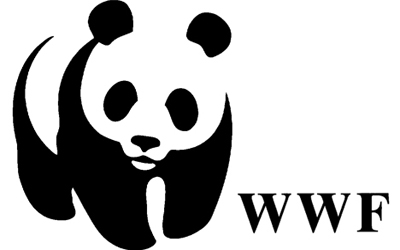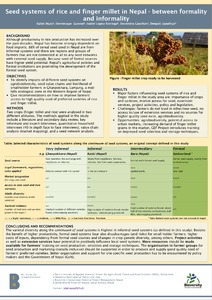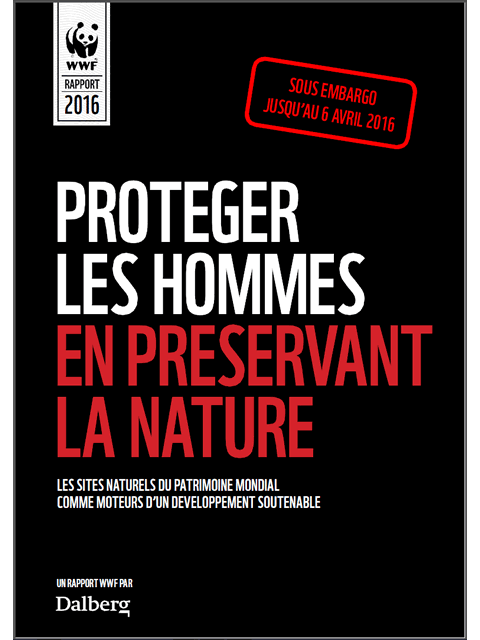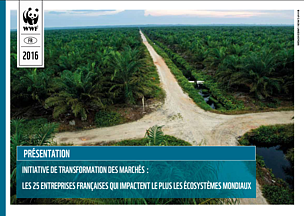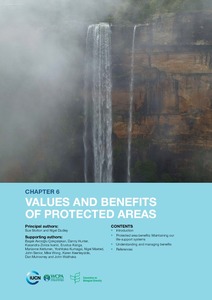Adepte d'une philosophie basée sur le dialogue et le respect de l'autre, le WWF oeuvre quotidiennement pour que dans un avenir proche, le développement humain puisse se faire en harmonie avec la nature.
Members:
Resources
Displaying 6 - 10 of 61Seed systems of rice and finger millet in Nepal, between formality and informality
In Nepal, more than 90% of cereal seed flows from informal systems and there are regions and groups of farmers that are not connected at all to any seed networks with external seed supply. Nepal's agricultural policies and formal institutions are promoting the development of the formal seed system. However, knowledge gaps exist on the opportunities and challenges for smallholder farmers when formal seed systems are becoming accessible.
Mongolia Strategic Plan FY17-21
This Strategic Plan to be implemented during a period from 2017 to 2021 is all about a contribution of WWF Mongolia towards successful and thriving co-existence of human beings and environment in Mongolia, particularly in two areas, namely Altai Sayan and Amur Heilong Ecoregions those have been named as important hubs and potentials for conservation.
Protéger les hommes en préservant la nature: les sites naturels du patrimoine mondial comme moteurs d'un développement soutenable
Date: 06 avril 2016
Source: Médiaterre
Selon le WWF, La moitié des sites du Patrimoine mondial sont menacés par des activités industrielles
Selon le dernier rapport du WWF, 114 des 229 sites naturels et mixtes inscrits au Patrimoine mondial sont menacés par des activités industrielles néfastes. Concessions pétrolière, minière ou gazière, surpêche, exploitation forestière illégale, surexploitation des ressources en eau, infrastructures de transport ou de tourisme : les menaces sont nombreuses.

